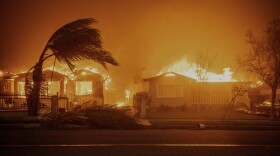The Supreme Court declined to intervene or overturn a Hawaii State Supreme Court decision that allowed the state to prosecute a man carrying a loaded pistol without a license.
Justices Clarence Thomas and Justice Samuel Alito criticized the Hawaii court's ruling, but supported the U.S. Supreme Court's move on technical grounds. Thomas wrote that the court should hear an "appropriate" case to "make clear that Americans are always free to invoke the Second Amendment as a defense against unconstitutional firearms-licensing schemes."
In 2017, Christopher Wilson was hiking in the West Maui Mountains when he was stopped by the property owner, turned over to the police, and informed he was trespassing. While speaking with the police, Wilson informed them that he was carrying a loaded pistol. After his arrest, the state of Hawaii brought criminal charges against him for carrying a handgun without a license.
In 2022, after the Supreme Court issued a broad gun-rights decision, Wilson again challenged the gun charge, claiming that under the Supreme Court's decision, carrying a firearm for self-defense was protected by the Second Amendment right to bear arms.
The trial court dismissed the charges, but Hawaii's Supreme Court, in a scathing decision, reversed, criticizing the U.S. Supreme Court's recent decisions—decisions that the state court said show "how the court handpicks history to make its own rules."
But Wilson countered that the state court was making its own rules by refusing to abide by Supreme Court precedent.
Thomas, writing Monday, said: "Had the Hawaii Supreme Court followed its duty to consider the merits of Wilson's defense, the licensing scheme's unconstitutionality should have been apparent."
He noted that Wilson could ask the Supreme Court to review the case again — a view echoed by Justice Neil Gorsuch.
Copyright 2024 NPR







